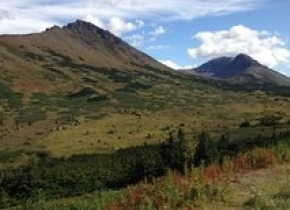
我们想要知道生物多样性随时间的变化
如果想深入了解一个生态系统,我们要像跟着钟表走一样跟上其中生物的种类和数量变化。
播音\撰文:Steve Mirsky
翻译:张艺箫
校对:潘磊
“We find that the composition of ecosystems around the world is changing much more rapidly than we expected. Indeed, much more rapidly than ecological theory predicts.”Biologist Anne Magurran of the University of Saint Andrews in Scotland.
“我们发现世界各地生态系统组成的变化速率比我们预想的要快得多。 甚至是超越了所有的理论预值。“ 苏格兰圣安德鲁斯大学的生物学家Anne Magurran说。
“We still don’t understand the consequences of this. We think that it’s going to be associated with a reduction in resilience in these assemblages, but there are still many questions to be addressed about the consequences of this rapid biodiversity change. And what it means is that if we’re interested in conservation we need to do much more than count species. We also need to track changes in the abundances and identities of the species present in these ecosystems. Conservation biologists will need to keep track of the types of species that they find in these places. And policy makers will need to will to take account of these changes in their policy.
“这种现象的后果仍然未知。我们猜测可能会降低生态系统的稳定性,但仍有许多相关的谜题尚未解决。如果想要落实生态保护,我们不能仅仅关注物种数量,还需要跟踪这些生态系统中物种多样性和种群密度的变化。保护生物学家需要持续关注当地发现的物种种类。政策制定也需要考虑到这些变化。
To that end, Magurran and colleagues are establishing what they’re calling the BioTIME Database, a repository for information about ecological communities and populations, and how they’re changing over time. Magurran spoke on January 26th with Scientific American Editor in Chief Mariette DiChristina at the World Economic Forum in Davos.
为此,Magurran和她同事正在建立一个名为的BioTIME数据库。其中储存了有关生态群落和种群的信息以及它们随时间的变化。1月26日 ,在达沃斯世界经济论坛上Magurran与《科学美国人》的编辑马里埃特·迪克里斯蒂娜一同为这个项目发声。
MD: “And the data set is going to be published very soon?”
MD:“这个数据库即将发布吗?”
AM: “Yes, we’re publishing the data set. It’s an open access data set, so anybody anywhere in the world can use it for research, for education, for conservation. And we’d be delighted to collaborate with anybody who has data and wishes to join with us or wishes to support the preservation of the data set in any way.”
AM:“是的,我们很快会发布这个数据库。它是开放式的,世界上任何地方的人都可以将其用于研究、教育和生态保护工作。我们非常乐意与你合作,无论是共享数据,愿意加入我们或是以其他任何方式支持这个数据库都十分欢迎。“
未经书面许可任何人不得复制或镜像
京ICP备11000850号
 京公网安备11010502039775号
京公网安备11010502039775号 信息网络传播视听节目许可证0111611号
国家科技基础条件平台

















